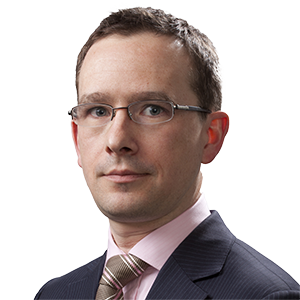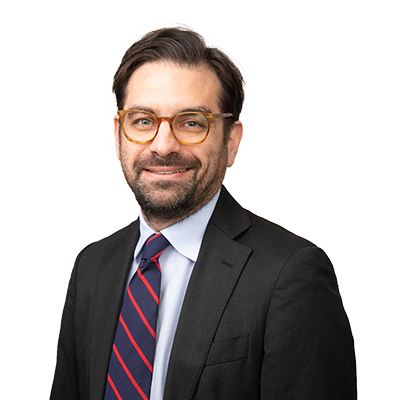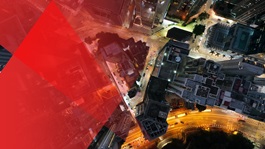The Lebanese energy and infrastructure markets are the most recent in the Middle East region to turn to privatisation to fulfil the country’s needs.
Earlier in 2019 the Ministry of Energy and Water (the Ministry) finally published the electricity plan, setting out the measures they will take to correct the perennial deficit of state utility Electricité du Liban (EdL), including a large scale roll out of independent power projects for both renewable and conventional electricity generation.
On the infrastructure side, the new PPP law was introduced in September 2017 and is currently pursuing three new projects: the expansion of Rafic Hariri International Airport; the Khalde – Nahr Ibrahim Expressway and the Lebanon Cloud Data Centre.
Background
The new impetus for the development of the energy and infrastructure sectors in Lebanon is the CEDRE Conference (Paris IV) that resulted in the international community pledging US$11bn of funding for the Lebanese Government’s Capital Investment Program, conditional on a corresponding reform program. International funding includes US$9.9 billion of concessional funding, envisaged to be implemented alongside private investment.
CEDRE reforms
The Vision for Stabilization, Growth and Employment, aimed at increasing public investment; economic and fiscal stability; structural and sectoral reforms; and a diversification strategy. Structural reforms cover fighting corruption, strengthening governance and accountability, including public finance management, modernising procurement rules, reforming customs and improving public investment management.
The 2018 Paris IV conference is the fourth time that the Lebanese Government and the international community have sought to implement financial commitments tied to reforms. The Paris III conference was held in 2007.
Only 26 out of 117 reform measures of the 2007 Paris III reform program were implemented, resulting in only 50 per cent of donor funding being disbursed. Failures were due to high institutional requirements of the reform measures. Past performance demonstrates that Lebanese Government institutions are more effective at implementing measures through Decrees that require approval of the Council of Ministers and President, than those which require the creation of new law by way of Parliamentary approval.
The Lebanese Government has learned from the past and is using measures with lower institutional requirements to achieve progress on energy and infrastructure projects.
Electricity sector
The Lebanese economy has a deficit of US$6 billion and GDP growth of approximately 1 per cent. The impact of the electricity sector on this is significant. Whilst public debt is currently 150 per cent of GDP, one third of this is attributable to EdL. Therefore the development of the electricity sector is essential to the success of CEDRE. 24 per cent of the Capital Investment Program is targeted at the electricity sector.
The Electricity Plan, approved by the Council of Ministers on 8 April 2019, sets out three main objectives: reduction of technical end commercial losses; increase in generation and reduction of fuel costs; and increasing consumer tariffs.
Electricity Plan objectives
Reduction in technical and commercial losses:
- Implementation of the national transmission masterplan
- Stabilization of the grid by completion of the Mansourieh 220kV connection
- Grid and distribution network upgrades
- Installation of 1 million smart meters between 2019-2021
- Increase collections, including US$1.2 billion from public authorities
Increase in generation and reduction of fuel costs:
- Phase 1: 1650MW of long term power generation from gas-fired power plants across three sites, at Deir Ammar, Selaata and Zahrani, coupled with 1450MW of temporary generation across the Deir Ammar, Zahrani, Zouk and Jieh sites
- Phase 2: 1100MW of gas-fired power plants at Zouk and Jieh, 300MW at Hraisheh and 70MW at Tyre
- Achieve 30 per cent renewable energy by 2030, of which phase 1 includes 220MW of wind, 180MW of solar PV, 300MW of solar with storage, 300MW of hydro and a second phase of wind power projects with a combined capacity of 400MW.
- Move from HFO to gas, initially using imported LNG through the procurement of FSRU capacity across three sites at Beddawi, Selaata and Sahrani.
Increase in the consumer tariff from US$c9.5/kWh to 14.4 by 2020.
The Electricity Plan envisages expansion of the generating capacity in Lebanon by 3,150MW in the next six years. This aggressive plan puts Lebanon on a par with Jordan and Saudi Arabia in terms of market opportunity for independent power producers.
Lebanon is currently in the process of financing its first series of independent power projects. PPAs for 220MW of wind power projects across three sites in the northern Akkar region of Lebanon were signed in February 2018. The project development was delayed by the hiatus in the formation of a government, which took nine months from May 2018 following the general elections, but the financing is now well underway. These projects will be the first international project financings of IPPs in Lebanon, and like all first-in-country projects, the dye is being cast as the projects develop towards financial close. The Lebanese Government’s policy decision to adhere to international best practice for its IPP programme has created a positive framework for the projects.
For the thermal IPPs, fuel is obviously a critical question. Lebanon benefits from connection to Egypt via the Arab Gas Pipeline. Gas flows have temporarily ceased due to the Syrian crisis, but the Lebanese Government is understood to be in discussions with Egypt to recommence gas supplies. A consortium of TOTAL, Eni and Novatek was awarded exploration rights over Lebanon’s offshore blocks 4 and 9 in 2017 and are in the process of drilling. The Lebanese Petroleum Administration is currently in the process of a second licensing round covering five blocks. In time, this has the potential to provide Lebanon with its own domestic gas supply.
As a means of bridging the gap, the Ministry has initiated a procurement process to secure LNG supplies and to charter three FSRUs, to be located at Beddawi, Salaata and Zahrani. The Ministry’s implementation plan is understood to be taking shape but it appears that a key decision as to whether to bundle fuel supply (including LNG) with the new gas-fired IPPs is still pending. The attractiveness of bundling fuel supply and power generation to a procurer is simplicity – it only has one interface with the private sector – however this leads to much more complex projects and, in reality, the government will need to retain control over its own security of supply and the fuel supply mix.
The new IPPs will be procured by the Ministry under Law No. 228/2014 pending the establishment of an electricity sector regulator which is contemplated under Law No. 462/2002. The Ministry’s authority to use Law No. 229/2014 to implement the Electricity Plan is currently the subject of a constitutional challenge which the Ministry is in the process of resolving.
Infrastructure projects
The infrastructure sector is a key focus of the Lebanese Government’s Capital Investment Program. In advance of the CEDRE Conference, the government passed the Law No. 48/2017 Regulating Public Private Partnerships and PPP (the PPP Law), with a view to augmenting the original PPP law, Law No. 228/2000, which established the Higher Council for Privatisation (the HCP). The PPP Law sets out some high level mechanisms for the implementation of PPP projects but is relatively light on the detailed terms to be included in PPP agreements as compared to equivalent legal mechanisms in the region. On balance this is likely to be positive, affording the HCP greater flexibility to accommodate the needs of different types of project in the infrastructure sector.
Some of the key features of the PPP Law are:
- Engagement of government stakeholders – PPP projects require the approval of the Council of Ministers and are overseen by a committee that includes representatives from the relevant Ministry responsible for the project and the Ministry of Finance. This should have the effect of ensuring that the project has buy-in from the relevant government bodies in order to secure progress and necessary financial commitments from the government.
- Competitive procurement – the PPP Law requires that procurement competitions are conducted transparency, freedom of participation and equality of treatment of bidders. Published prequalification and bid evaluation criteria, public tender openings and the requirement to give reasons to unsuccessful bidders should ensure transparency and fair competition. The PPP Law requires that three bids be submitted but that if only two are received, the Council of Ministers may allow the project to proceed. Only compliant technical proposals will proceed to the financial evaluation stage.
- Lebanese ownership – project companies established to implement PPP projects are exempted from articles 78 and 144 of the Code of Commerce, which require that 1/3 of the share capital of companies engaged in public service be held by Lebanese nationals and that a majority of the board of directors are Lebanese nationals.
- Tenor – the term of the PPP agreement may not exceed 35 years from signature.
- Share retention – the private investor may not dispose of shares in the project company before the operational milestone is achieved. We expect that the PPP agreement may contain more restrictive share retention obligations.
- Budget allocation – the PPP Law requires that the state funds committed for each PPP project are designated in national budgets. If the Ministry of Finance is required to issue government guarantees for termination payments under PPP agreements, these must therefore be accounted for in the national budget.
One of the main advantages of the PPP Law is that it authorises the use of international arbitration in the PPP contract. Without this, a Council of Ministers decision is required to permit any state entity to submit to international arbitration. Whilst this has been described as a lengthy process, in practice we have found the Council of Ministers ready to give this authorisation for strategic projects.
The PPP Law should apply to projects in the electricity sector as well as other forms of infrastructure. However the wind IPPs currently being financed were awarded under a specific Council of Ministers’ decision and it seems likely that the Ministry will continue to use this route to procure IPPs.
The PPP projects
Rafic Hariri International Airport
In February 2018 the Council of Ministers approved the expansion of Rafic Hariri International Airport to be implemented as a PPP project. The project involves the expansion of the existing Beirut airport to handle 6 million passengers and the development of non-aeronautical revenues to make the airport financially sustainable.
This project ties into the Lebanese Government’s strategic aims of enhancing the country’s transportation infrastructure and is focussed on facilitating an expansion of the tourism industry to 25 per cent of GDP. The transaction advisory team has been appointed and includes International Finance Corporation as lead advisor, ICF International as aviation consultant and DLA Piper as international legal advisor.
Khalde – Nahr Ibrahim Expressway
The project was approved as a potential PPP project in February 2018 and involves the construction and operation of a 38km expressway with a 3-4 lane dual carriageway, 12km tunnel section and interchanges, service roads and bridges.
The design of the project is ongoing and may ultimately be split into sections to facilitate funding for the expropriation process. A number of alternative designs are being considered to minimise the expropriation costs. The European Bank for Reconstruction and Development is funding the appointment of consultants to provide transaction advisory services to the Ministry for Public Works and Transportation and the HCP.
Lebanon Cloud Data Centre
The project entails the construction and operation of a data centre for a term of 15-20 years and is intended to promote the communication and technology sector in Lebanon, to improve business continuity and disaster recovery capabilities and encourage foreign investment in Lebanon. KPMG, Solon Management Consulting and Dechert have been appointed as the transaction advisory team.
It is understood that three sites are being considered for the location of 1,600m2 of technical working space and a 6MW power generation facility and anchor customers are in the process of being identified.
Conclusion
The Lebanese legal and political landscape is complex but there is clear demand for energy and infrastructure investment and an imperative for private sector involvement. Multilateral financing institutions appear ready to provide significant levels of support and the Lebanese Government’s use of measures involving lower institutional barriers has great potential to make Lebanon one of the hottest investment opportunities for the energy and infrastructure sectors in the region over the next five years.
This briefing was written by Chris Down and Rebecca Abou-Chedid.





